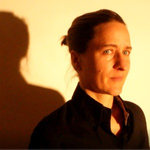Ser y Estar - Ayuda para entender mejor su uso

Una de las mayores dificultades que os abordan para usar correctamente el español como lengua extranjera es sin duda la aplicación de los verbos “ser” y “estar”. Dos verbos diferentes traducidos por tan sólo uno para la mayoría de vosotros (to be, sein, essere, être, biti, etc.). Probablemente producto de la gran influencia greco-latina (εἰμί, esse) a la que estamos tan arraigados.
En primer lugar, para evitar el azar y que éste sea siempre vuestro último recurso, hay que estudiar su significado según su contexto y para ello os aconsejo utilizar el diccionario oficial de la RAE (Real Academia Española), los usos más frecuentes son:
- SER: existir, servir, suceder, corresponder; indicar tiempo, posesión, opinión, etc.
- ESTAR: permanecer; hallarse en este o aquel lugar, situación, condición, etc.
En segundo lugar, hay otro significado que los une, creando cierta ambigüedad, puesto que ambos pueden ser usados para la descripción de un sujeto que realiza la acción, la diferencia entre ellos radica en su temporalidad, pues si nos referimos a una cualidad permanente utilizaremos "ser", mientras que por el contrario el uso de "estar" nos indicará su estado en ese preciso momento en que se habla.
La mejor manera de lidiar con esta dificultad es practicando, así pues, te invito a realizar el siguiente ejercicio. Anota o memoriza la opción correcta que creas conveniente en estos diferentes contextos y después comprueba tus propios resultados. ¡Suerte!

Enrique y Laura se disponían a ir al cine una tarde de verano. Enrique estaba esperando en el portal de la casa de Laura durante algunos minutos, impaciente al ver que ésta no acudía, le llama al timbre y le pregunta:
- a) ¿Estás lista? < - - - - - > b) ¿Eres lista?
Una vez llegan al cine, se colocan en la cola de la taquilla esperando su turno. En ese instante, Enrique abre su billetera y se da cuenta que no tiene dinero suficiente. Laura se lo presta sin problemas. Enrique admirado y agradecido le dice:
2. a) ¡Estás muy buena! < - - - - - > b) ¡Eres muy buena!
Ya en el cine, a mitad de la película, Enrique empieza a bostezar. Cuando Laura se percata, le pregunta:
3. a) ¿Estás aburrido? < - - - - - > b) ¿Eres aburrido?
Enrique le explica que la noche anterior no pudo dormir porque tuvo fiebre, pero que no tenía por qué preocuparse porque ya se encontraba mejor. Laura. al ponerle la palma de la mano sobre la frente, susurra:
4. a) ¡Estás enfermo! < - - - - - > b) ¡Eres enfermo!
5. a) ¡Estás frío! < - - - - - > b) ¡Eres frío!
Enrique, molesto ante tanta preocupación le respondió: - ¡Ya basta, Laura!
6. a) ¡No estés pesada! < - - - - - > b) ¡No seas pesada!
7. a) ¡No estoy malo! < - - - - - > b) ¡No soy malo!
Finalmente, cuando ambos salen del cine, van comentando sus opiniones respecto la película y Laura concluye diciendo con desagrado sobre el protagonista principal:
8. a) Torrente está muy verde < - - - - - > b) Torrente es muy verde.
F I N

¡Ojo con la opción elegida! Ambas opciones dadas son correctas gramaticalmente, pero tienen significados diferentes y pueden extrañar al receptor por su incoherencia. Si es tu caso y crees que has cometido muchos errores, no hay que preocuparse, porque ¡de los errores también se aprende!
(Solucionario: 1a, 2b, 3a, 4a, 5a, 6b, 7a y 8b)
١٥ تشرين الثاني نوفمبر ٢٠١٧





